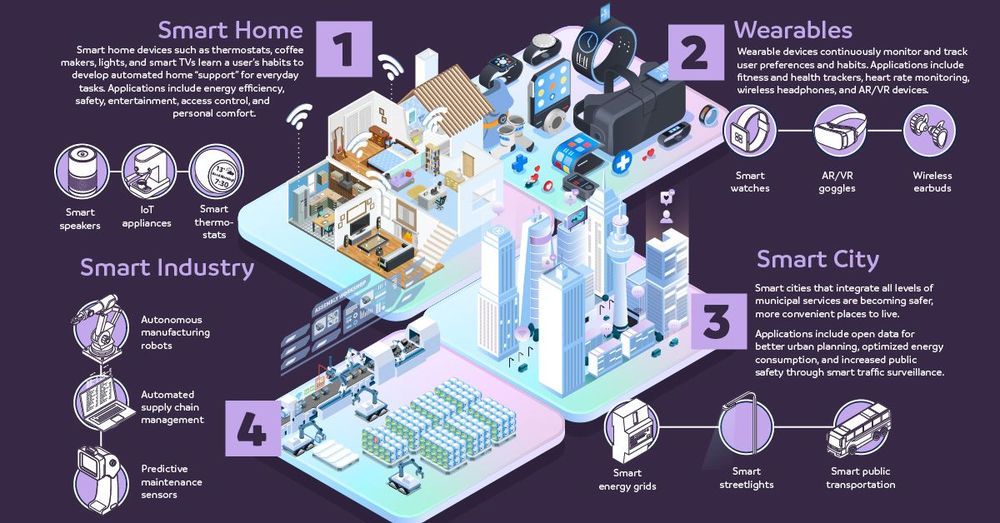Ookla tests aren’t showing the gigabit speeds SpaceX teased, but it’s early.



The proposed mechanism of action described in the claim that 5G millimeter waves can generate SARS-CoV-2 in human cells violates fundamental principles of biology. Scientific evidence does not support a causal relationship between 5G and COVID-19. Many of the regions with the highest COVID-19 infection rates, such as Brazil, do not have 5G coverage, providing further evidence that 5G is not associated with the pandemic.
FULL CLAIM: 5G generates coronavirus in human skin cells

Tesla’s highly-anticipated Battery Day is still several weeks away, but CEO Elon Musk appears to have started posting cryptic teasers about some of the innovations that would be introduced at the event. Based on a recent post on Twitter, it appears that Tesla’s Plaid Model S, and perhaps even the Plaid Model X, may be unveiled at Battery Day.
Ever the internet’s resident meme lord, Elon Musk recently posted a photo of Herbert Ruggles Tarlek, Jr., a character on the television situation comedy WKRP in Cincinnati, which ran from 1978 to 1982. The character was noted for his loud plaid suits, which were usually dominated by bold colors and patterns. Musk’s tweet noted that “One day soon, I will wear this outfit.”
A world first. New footage from Mars rendered in stunning 4K resolution.
Although the cameras are high quality, the rate at which the rovers can send data back to earth is the biggest challenge. Curiosity can only send data directly back to earth at 32 kilo-bits per second.
Instead, when the rover can connect to the Mars Reconnaissance Orbiter, we get more favourable speeds of 2 Megabytes per second.
However, this link is only available for about 8 minutes each Sol, or Martian day.
As you would expect, sending HD video at these speeds would take a long long time. As nothing really moves on Mars, it makes more sense to take and send back images.
Credits — NASA, ElderFoxDocumentaries.
#MARS #Marsin4K #MARSinHD #MARSVideo #OccupyMars #MarsSurface #NASA



SpaceX is manufacturing its Starlink satellites at an unprecedented rate for the space industry, analysts say, as the company dives headlong into building a space-based global internet service.
Elon Musk’s company told the Federal Communications Commission in a presentation last month that its Starlink unit is “now building 120 satellites per month” and has “invested over $70 million developing and producing thousands of consumer user terminals per month.”
“Invested hundreds of millions of dollars in Starlink to date,” the SpaceX presentation added.
The terrorist or psychopath of the future, however, will have not just the Internet or drones—called “slaughterbots” in this video from the Future of Life Institute—but also synthetic biology, nanotechnology, and advanced AI systems at their disposal. These tools make wreaking havoc across international borders trivial, which raises the question: Will emerging technologies make the state system obsolete? It’s hard to see why not. What justifies the existence of the state, English philosopher Thomas Hobbes argued, is a “social contract.” People give up certain freedoms in exchange for state-provided security, whereby the state acts as a neutral “referee” that can intervene when people get into disputes, punish people who steal and murder, and enforce contracts signed by parties with competing interests.
The trouble is that if anyone anywhere can attack anyone anywhere else, then states will become—and are becoming—unable to satisfy their primary duty as referee.
In The Future of Violence, Benjamin Wittes and Gabriella Blum discuss a disturbing hypothetical scenario. A lone actor in Nigeria, “home to a great deal of spamming and online fraud activity,” tricks women and teenage girls into downloading malware that enables him to monitor and record their activity, for the purposes of blackmail. The real story involved a California man who the FBI eventually caught and sent to prison for six years, but if he had been elsewhere in the world he might have gotten away with it. Many countries, as Wittes and Blum note, “have neither the will nor the means to monitor cybercrime, prosecute offenders, or extradite suspects to the United States.”
Technology is, in other words, enabling criminals to target anyone anywhere and, due to democratization, increasingly at scale. Emerging bio-, nano-, and cyber-technologies are becoming more and more accessible. The political scientist Daniel Deudney has a word for what can result: “omniviolence.” The ratio of killers to killed, or “K/K ratio,” is falling. For example, computer scientist Stuart Russell has vividly described how a small group of malicious agents might engage in omniviolence: “A very, very small quadcopter, one inch in diameter can carry a one-or two-gram shaped charge,” he says. “You can order them from a drone manufacturer in China. You can program the code to say: ‘Here are thousands of photographs of the kinds of things I want to target.’ A one-gram shaped charge can punch a hole in nine millimeters of steel, so presumably you can also punch a hole in someone’s head. You can fit about three million of those in a semi-tractor-trailer. You can drive up I-95 with three trucks and have 10 million weapons attacking New York City. They don’t have to be very effective, only 5 or 10% of them have to find the target.” Manufacturers will be producing millions of these drones, available for purchase just as with guns now, Russell points out, “except millions of guns don’t matter unless you have a million soldiers. You need only three guys to write the program and launch.” In this scenario, the K/K ratio could be perhaps 3/1,000,000, assuming a 10-percent accuracy and only a single one-gram shaped charge per drone.
Will emerging technologies make the state system obsolete? It’s hard to see why not.

Many organizations will likely look to technology as they face budget cuts and need to reduce staff. “I don’t see us going back to the staffing levels we were at prior to COVID,” says Brian Pokorny, the director of information technologies for Otsego County in New York State, who has cut 10% of his staff because of pandemic-related budget issues. “So we need to look at things like AI to streamline government services and make us more efficient.”
For 23 years, Larry Collins worked in a booth on the Carquinez Bridge in the San Francisco Bay Area, collecting tolls. The fare changed over time, from a few bucks to $6, but the basics of the job stayed the same: Collins would make change, answer questions, give directions and greet commuters. “Sometimes, you’re the first person that people see in the morning,” says Collins, “and that human interaction can spark a lot of conversation.”
But one day in mid-March, as confirmed cases of the coronavirus were skyrocketing, Collins’ supervisor called and told him not to come into work the next day. The tollbooths were closing to protect the health of drivers and of toll collectors. Going forward, drivers would pay bridge tolls automatically via FasTrak tags mounted on their windshields or would receive bills sent to the address linked to their license plate. Collins’ job was disappearing, as were the jobs of around 185 other toll collectors at bridges in Northern California, all to be replaced by technology.
Machines have made jobs obsolete for centuries. The spinning jenny replaced weavers, buttons displaced elevator operators, and the Internet drove travel agencies out of business. One study estimates that about 400,000 jobs were lost to automation in U.S. factories from 1990 to 2007. But the drive to replace humans with machinery is accelerating as companies struggle to avoid workplace infections of COVID-19 and to keep operating costs low. The U.S. shed around 40 million jobs at the peak of the pandemic, and while some have come back, some will never return. One group of economists estimates that 42% of the jobs lost are gone forever.
Live coverage of the countdown and launch of a SpaceX Falcon 9 rocket from pad 39A at NASA’s Kennedy Space Center in Florida. The mission will launch SpaceX’s tenth batch of Starlink broadband satellites. Text updates will appear automatically below. Follow us on Twitter.
Spaceflight Now members can watch a live view of the pad. Join now.